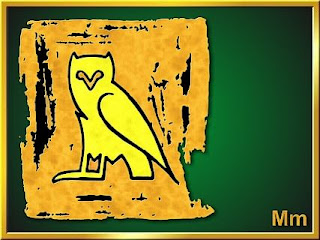Anubis
Anubis was depicted as a jackal
He was the Egyptian god of the underworld who guided the spirits of the dead into the afterlife
Apis
Anubis was depicted as a jackal
He was the Egyptian god of the underworld who guided the spirits of the dead into the afterlife
It was his job to waken the dead for their final judgement and oversee 'the weighing of the heart'
This was the method of judgement used to decide if a soul was worthy to enter the underworld
He was also the god who invented mummification. After Seth had killed Osiris, Anubis wrapped his body in linen to prevent it from decaying
Apis was depicted as a bull
He was the Egyptian god of strength and fertility
The spirit of Apis was said to be present in the body of a real bull which was kept by the Pharaoh and looked after by his priests
At the end of the old year, the Apis bull was slaughtered and its flesh eaten by the Pharaoh. It was believed that the Pharaoh would then inherit the great power of Apis
Each year the priests would search for a new Apis bull which would then live a life of luxury until the ritual was repeated
Bastet
Bastet ( or Bast ) was depicted with the head of a cat or lion
She was an Egyptian goddess from Lower Egypt who was associated with joy, music and dancing
She was the mother of Mihos, another lion god, and the wife of Ptah, god of the arts and crafts
Bastet is mentioned in the Book of the Dead where she destroyed the bodies of the deceased with her 'royal flame' if they failed any of the tests for entry to the underworld
Horus
Horus was depicted as a falcon
This bird was the perfect symbol for the Egyptian god of the sky, light and goodness who soared above and protected the land of the Pharaohs
It was believed that each Pharaoh became Horus on Earth and was reborn as Horus after their death
In a battle which lasted 80 years, Horus conquered Seth, the god of Upper Egypt, to revenge the murder of his father, Osiris
Khnum
Khnum was depicted as a ram
He was the Egyptian water god and the potter god of creation
It was believed that he created the first children on his potter's wheel with clay from the banks of the Nile
Khnum also protected the sun (in the form of the god Ra) on its daily journey through the underworld
Seth
Seth was depicted as a strange creature that seems to be a composite of various animals like a giraffe, camel, ant eater or okapi
He was the Egyptian god of storms and chaos
Out of jealousy, Seth murdered his brother Osiris, the ruler of Egypt
He tricked Osiris into lying down inside an expensive chest, with the promise that it would be his, if he could fit inside it
With Osiris in position, Seth's collaborators nailed the lid shut and threw him into the Nile to drown
Isis, the devoted wife of Osiris, searched for and found the chest which held Osiris' body
Seth was so furious when she discovered his brother's body that he cut it into fourteen pieces and scattered them throughout the land
Sobek
Sobek was depicted as a crocodile
He was the Egyptian god of the Nile which was believed to have been created from his sweat
As Sobek possessed the strength and nature of a crocodile, which the Egyptians both feared and respected, he became a symbol of the Pharaoh's power
The Nile, which was full of crocodiles, was important to the livelihood of the Egyptians
It therefore made good sense to have a god like Sobek who could appease these ferocious beasts
Thoth
Thoth was depicted as an ibis
Thoth was the Egyptian god of wisdom, writing, numbers, the arts, astronomy and magic
He was also a god of the underworld, in charge of the scales in the Hall of Judgement
Thoth used the scales to weigh the heart of the deceased against the feather of truth to determine if they were worthy to enter the afterlife
As the scribe of the gods, Thoth recorded the result of each judgement

























